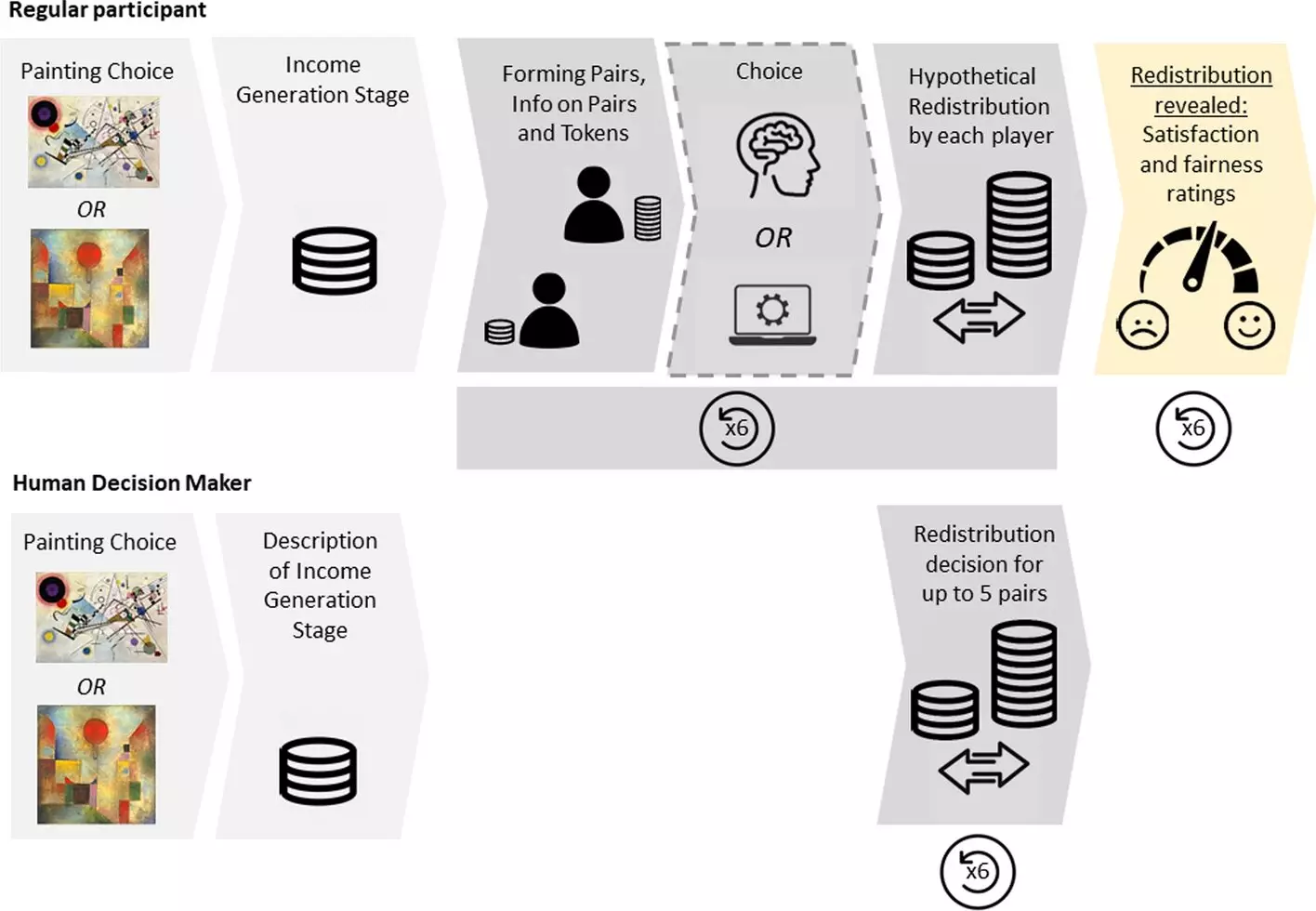Recent research from the University of Portsmouth and the Max Planck Institute for Innovation and Competition has shed light on people’s attitudes towards artificial intelligence (AI) versus human decision-making in redistributive scenarios. The study, published in the journal Public Choice, explored how individuals perceive algorithms compared to humans when it comes to making fair decisions regarding the distribution of earnings.
The study conducted an online decision experiment where participants from the U.K. and Germany were asked to choose between a human and an algorithm to determine how much money they earned. Surprisingly, over 60% of participants favored AI over humans for redistributive decisions, regardless of the potential for discrimination. This contradicts the common belief that humans are preferred in ethical decision-making processes such as fairness.
Although participants showed a preference for algorithms in making redistributive decisions, their satisfaction levels differed when evaluating the fairness of the choices made. While they were less satisfied with the decisions made by AI, they still found human decisions to be fairer. These subjective ratings were influenced by participants’ own financial interests and ideals of fairness.
Dr. Wolfgang Luhan, an Associate Professor of Behavioral Economics at the University of Portsmouth, emphasized the importance of transparency and accountability in algorithmic decision-making. While people are open to the idea of AI making unbiased choices, the ability of algorithms to explain their decisions is crucial for acceptance. Especially in moral decision-making contexts, transparency and accountability play key roles in ensuring the public’s trust in AI.
The findings of this study have significant implications for various sectors where AI is increasingly being utilized for decision-making. Companies using AI for recruitment, compensation planning, and public bodies employing AI in policing and parole strategies need to focus on improving algorithm consistency and transparency. With advancements in these areas, the public may become more supportive of algorithmic decision-makers even in morally significant domains.
The study’s results highlight a shift in people’s preferences towards artificial intelligence over humans in redistributive decisions. While the potential for unbiased choices favors algorithms, the importance of transparency and accountability cannot be overstated. As AI continues to play a larger role in decision-making processes, ensuring public trust and satisfaction will be essential for its acceptance and effectiveness.


Leave a Reply